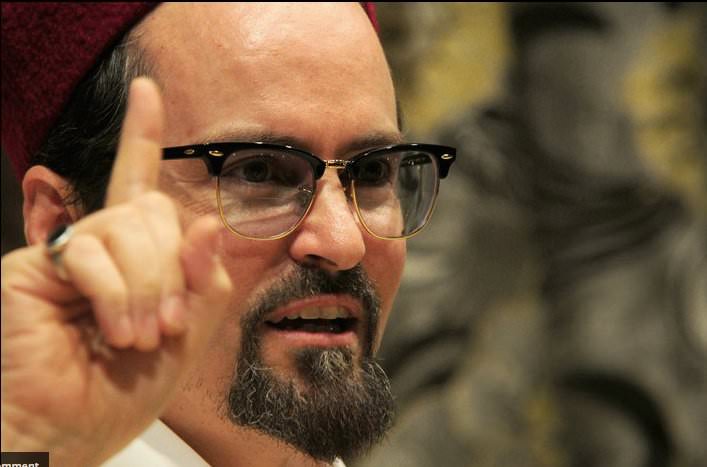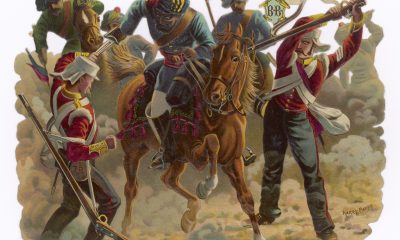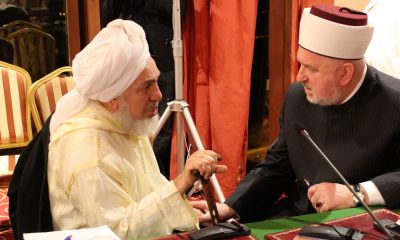Career and Money
Fair Trade Commerce for a Better Future – Shaykh Hamza Yusuf
Published
By
Guests
Lecture by Shaykh HamzaYusuf | Transcribed by Anonymous
[The following is the video and transcript of Shaykh Hamza Yusuf’s lecture entitled ‘Fair Trade Commerce for a Better World.’ The transcript includes slight modifications for the sake of readability and clarity].
All praise be to Allah 


Alhamdullilah, what I wanted to talk about was fair trade, and extending that meaning beyond the confines that have defined it in the dominant western discourse. The Qur’an tells us not to consume “wa la ta’qul nasi bi batili”. Don’t consume the wealth of people falsely, unjustly, vainly. Batil is everything that is empty, it’s what’s not good. So it’s the opposite of haqq, which is truthfulness, sincerity, reality, what is real. So it says don’t consume the wealth of people unjustly. “takuna tijaratan aow Ila tijaratun an taraadin minkum,” let your trade only be trade that is mutually content. In other words, each side is content with the actual event of trade and commerce. This is an incredibly important point, all of the Qur’an is important but this verse is so central to what’s happening right now globally, and why we’re seeing so much turmoil in what are called the markets.
Keep supporting MuslimMatters for the sake of Allah
Alhamdulillah, we're at over 850 supporters. Help us get to 900 supporters this month. All it takes is a small gift from a reader like you to keep us going, for just $2 / month.
The Prophet (SAW) has taught us the best of deeds are those that done consistently, even if they are small. Click here to support MuslimMatters with a monthly donation of $2 per month. Set it and collect blessings from Allah (swt) for the khayr you're supporting without thinking about it.
These global markets, where wealth is consumed unjustly. People’s wealth is stolen, misappropriated, given to people without the right accountability. And this is happening in many many places. And so Allah 




So the idea of just commerce and balance is very important in the Quran. Historically in the marketplace -and this is unfortunately no longer the case because of digital scales- but historically you had scales in the marketplace, so people could actually see the justice. If you bought a pound of fruit, the merchant would put a pound weight on the scale, and then he would place the fruit on the other. And in Islamic tradition they used to always tip the scales to be on the side of the buyer, not on the side of the merchant, because the Prophet (saw) said may God have mercy on a man or a woman, who is forbearing, who is forgiving, who is generous, when they sell or when they buy. And I’ve seen this many times when I was in Fez or places in Morocco, they would do this. They would tip the scale, they’d put an extra date to tip the scale, just to show that you’re getting the extra, because they wanted that ziyada, that extra, of ihsaan.
We’re living in a time of incredible economic injustice and that injustice is because we have an unjust economic system. Economics now has become a necessary science to understand. You have to understand the basics of economics to be living on the planet that we’re living in, because it’s affecting all of us. It’s affecting our lives. We have to understand the false dialectic that’s been created between the so called Keynesian and monetarist. This left/right dialectic, as if there’s no other alternative to these two approaches to economics because the Muslims have an alternative, but unfortunately we’ve been absent from the discourse. Even though much of what is beneficial in western commerce came out of transacting with the Muslims. In fact, “average” is from an Arabic word, because merchants they used to say, and you can look this up in chambers etymological dictionary or google it. Average is an Arabic word because merchants used to have a type of takaful, when they would send a ship with goods, and if goods were destroyed, a portion of the goods were destroyed, they would take an average and all the merchants would share in it. It was a type of insurance. So this came, ta’reef, tariff, is from the Muslims because we forget that our religion is a religion of commerce. I reflected deeply at one point when I was studying the seerah, why the Prophet 

The reason, I believe, the reason that the Prophet 

But the other thing about commerce is, if you want your commerce to be successful, you have to be trustworthy. That is the essential characteristic of commerce, trustworthiness. If you give your word, you stand by it. If you write a note, you fulfill it. If you promise goods on a certain day, you fulfill that. And if you don’t, people stop doing business with you. The Prophet 







The prophet 

Now one of the things that is very striking about our age is the incredible disparities between the north and the south. The north and the south, and this is something that was pointed out in the seventies by Brant in Germany, he wrote a book about this. So this is, this has been going on for a long time but people in the west, the best of the people, Ulul Baqiyya, those people that are still on virtuous tradition from their ancestors, these people are very concerned about these disparities. Canada is one of the countries that has a real concern. Many of the best countries in the world, if you look at them today, that have the highest social indices in the world have a great concern about social justice. Not just in their own countries but in other places.
And so what happened, you had a movement that began from a Mennonite Christian woman and the Mennonite community is a strong community in Canada. She went to Puerto Rico and she witnessed the types of social disparity, and it troubled her and she wanted to help. And so she thought of bringing goods paying good prices, just prices to people in Puerto Rico and importing those goods into these countries like United States and Canada. And this was the beginning of the fair trade movement.
CNN recently reported from a website that was supported by, was actually a state department funded project that the average American has, and this would obviously be very difficult to work out. But it’s interesting to think about. The average American has 59 slaves working for them around the world. 59. In other words, your lifestyle is based, our lifestyle, not yours, I’m putting myself in there too. Our lifestyle is based on the suffering of other people because, for instance, and I’ve stopped eating chocolate for this reason, when I found out, and you can see the film on this. There’s a documentary that was done on it, on the child labor in harvesting cocoa, that 70% of cocoa on this planet is harvested by child labor. And so when you’re eating that chocolate, your pleasure is somebody else’s pain. And if you don’t think that’s having an impact on your being, then you have to wonder why everybody’s on Prozac in these countries. Why are people so depressed? They’re depressed because, because much of what we’re enjoying, the fruits of our cheap lifestyles, of our cheap gasoline, of our cheap clothes, of our cheap shoes, all of these things, the Walmart world of cheap goods is based on exploited labor from other places. Not only is that exploited labor the pain and suffering of other people but its direct result is the unemployment that’s happening all over these western countries. They’re losing their jobs because they’re going to Walmart and buying something that’s made in Indonesia with labor laws that don’t exist, often in incredibly difficult conditions, people working in factories that are really subhuman, and they will buy that instead of buying something that was made by somebody in their own town. There used to be people that made shoes, Americans and Canadians and these other places, they actually used to produce things. That’s no longer the case. But it’s not fair because it’s based on the exploitation of other peoples. And we have to deal with the fact that this is the life that we’re living.
Keep supporting MuslimMatters for the sake of Allah
Alhamdulillah, we're at over 850 supporters. Help us get to 900 supporters this month. All it takes is a small gift from a reader like you to keep us going, for just $2 / month.
The Prophet (SAW) has taught us the best of deeds are those that done consistently, even if they are small. Click here to support MuslimMatters with a monthly donation of $2 per month. Set it and collect blessings from Allah (swt) for the khayr you're supporting without thinking about it.

Nationalism And Its Kurdish Discontents [Part II of II]: Kurds And Turkiye After Ottoman Rule

Nationalism And Its Kurdish Discontents [Part I of II]: Kurds In An Ottoman Dusk

Moonshot [Part 10] – The Marco Polo

Moonshot [Part 9] – A Religion For Real Life

Genocidal Israel Escalates With Assault On Iran

Moonshot [Part 10] – The Marco Polo

Moonshot [Part 9] – A Religion For Real Life

Moonshot [Part 8] – The Namer’s House

Moonshot [Part 7] – The Abyss Stares Back

[Podcast] A Riba-Free Future With A Continuous Charity | Faizan Syed

[Dhul Hijjah Series] Calling Upon the Divine: The Art of Du’a (Part 1)

IOK Ramadan 2025: Four Steps | Sh Zaid Khan

IOK Ramadan 2025: Do Your Best | Sh Zaid Khan

IOK Ramadan 2025: Giving Preference to Others | Sh Zaid Khan







ZAI
March 28, 2014 at 5:36 AM
Mashallah.
Amazing talk by Shaykh Hamza.
In-depth, multi-faceted, detailed and critical analysis that
goes beyond superficial do’s and don’ts or simplistic
summations or slogans. Brilliant. Glad to see his work
being presented here.
Bismillahfille
March 28, 2014 at 9:47 AM
This read makes me want to change
O H
March 28, 2014 at 9:15 PM
Heard this lecture couple of weeks back and I was really pumped up and motivated to change. Sadly never came!! I hope its different for you…
umaneesa
March 28, 2014 at 11:00 AM
”The average American has 59 slaves working for them around the world.”
Powerful stuff
Giovanni
March 28, 2014 at 5:02 PM
Because much of the problem is structural, in order to effectively make a change we need a collective and concerted effort to redesign our technology and infrastructure and the way it is developed. Permaculture is among the techniques that will enable just such a structural redesign inshAllah . http://beyondhalal.com/2013/12/the-growing-relationship-between-muslims-and-permaculture-design/
O H
March 28, 2014 at 5:54 PM
Although I disagree with many of his views, this was a good, unique lecture. The optimistic and proactive approach he proposed and encouraged is severely lacking among the Muslims globally and hence we are in the situation we are today.
Mahmud
March 28, 2014 at 7:38 PM
Assalamualaikum wa rahmatullahi wa barakatuh
I’m pretty surprised myself-this has got to be one of the best things I’ve read. It’s extremely well done except for a short bit which I found incoherent(but that probably has to do with it being transcribed.)
Muhamm
March 29, 2014 at 1:13 PM
Can anyone please provide the source for “59 slaves” and “corporations and mental disorder” studies.
Jazak’Allah
Sadeel
April 1, 2014 at 11:05 PM
Thank you!!! This is one of the reason for our initiative eShop launch of our MODSHOP to bring awareness to the Muslim community along with options on healthier garments. Our initiative is a ‘1st Step’ approach where the customer can support fair labor from the garment construction point. The majority o four brands are Muslim based in the USA. please do support http://www.modshop.us
jackfone
June 8, 2015 at 5:06 PM
http://slaveryfootprint.org
Pingback: Sharing Success: Fair Trade Commerce for a Better World | Khaleafa.com